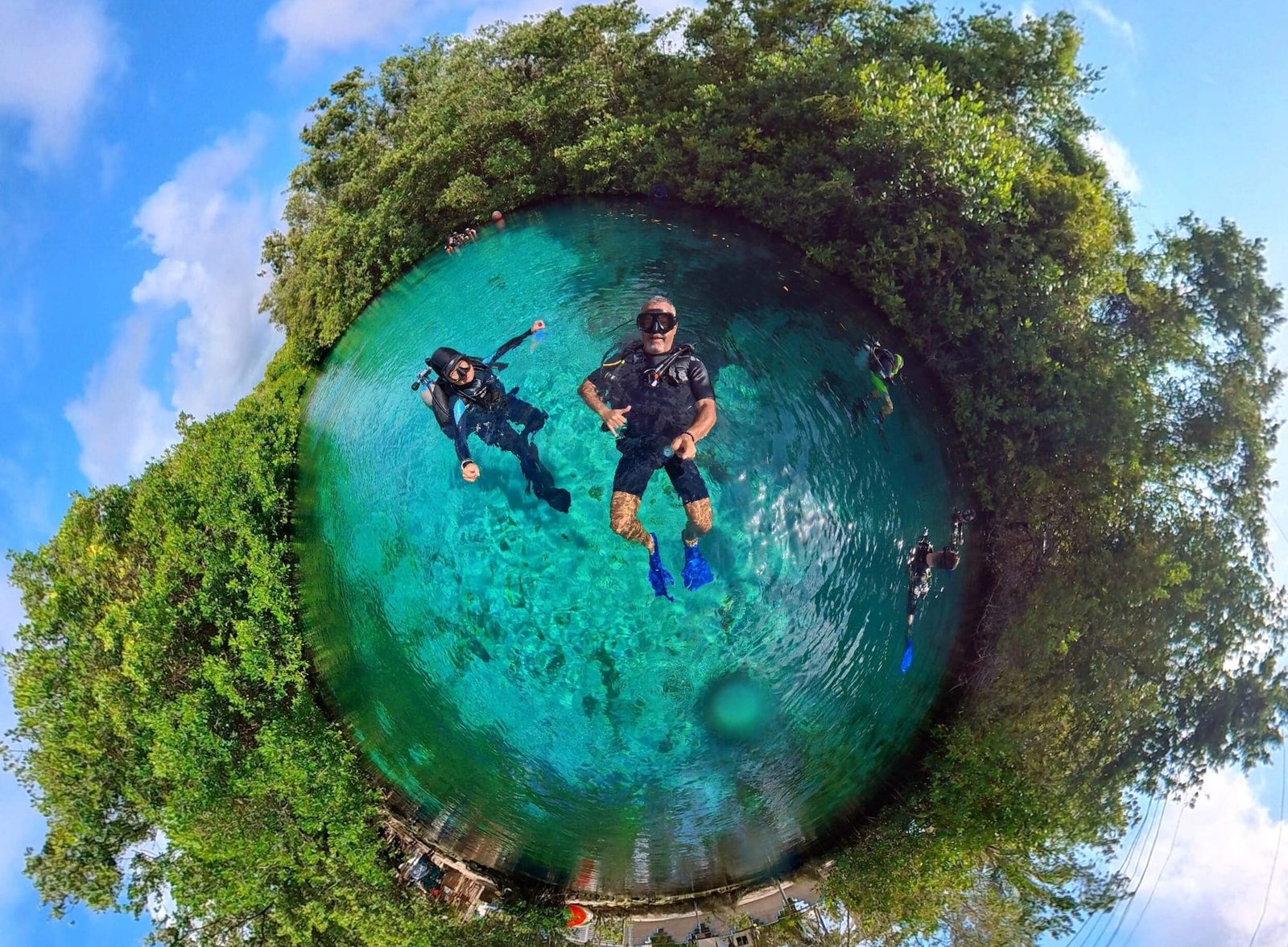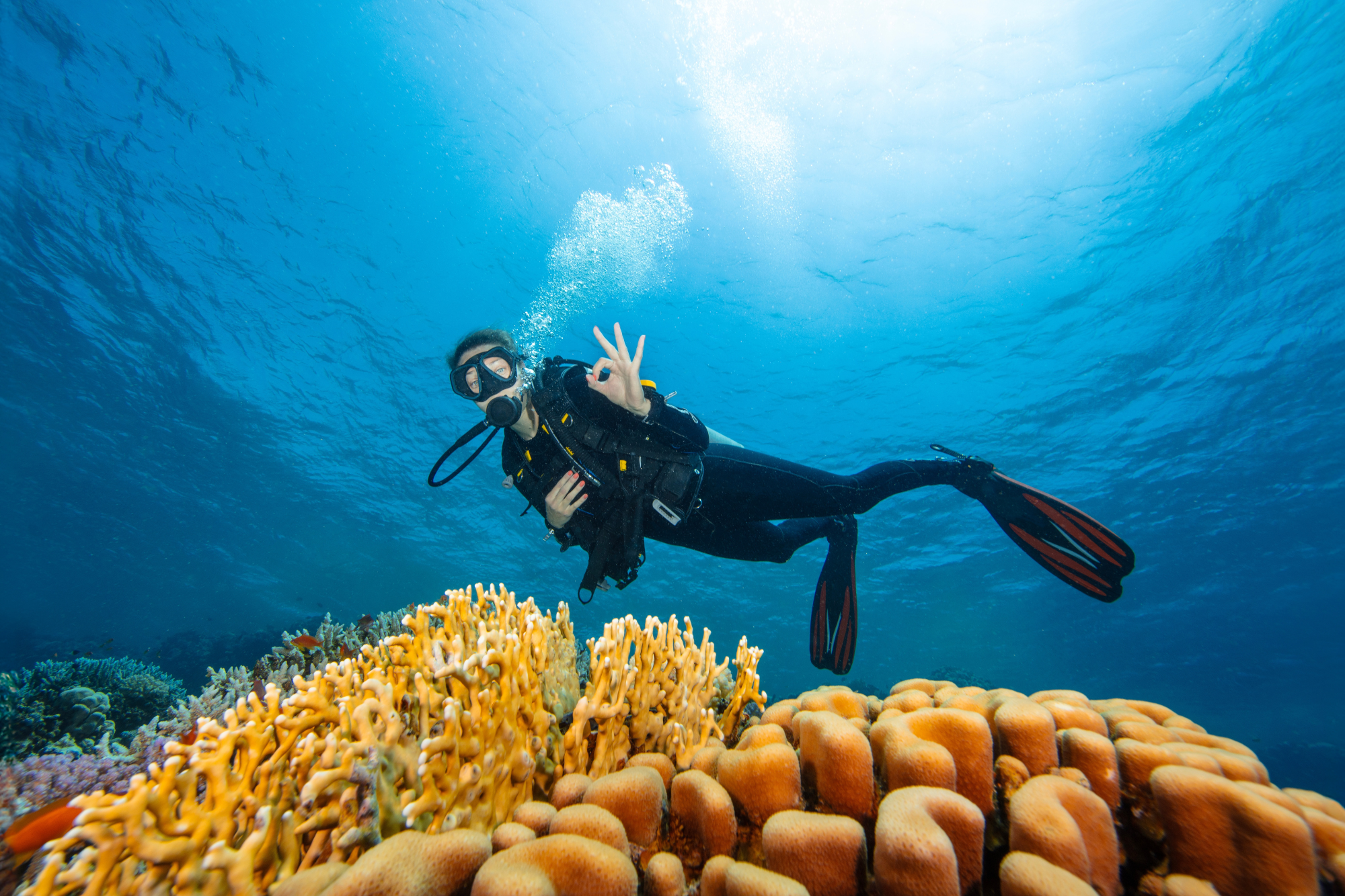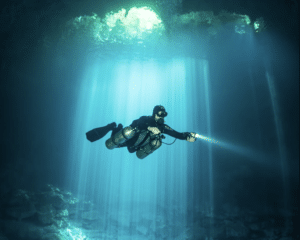There’s something fundamentally transformative that happens when you slip beneath the surface, strap on your gear, and breathe your first regulator breath in a world that doesn’t feel like your own.
When you dive — whether you’re a novice doing your first open-water course or a seasoned diver logging your hundredth dive — you don’t just explore underwater landscapes; you begin to explore yourself. The dive doesn’t end when you surface.
It echoes in the way you move through life above the waves. In this extended post, we’ll explore the shifts that occur within you after diving: facing your fears, learning to breathe, connecting with nature, becoming deeply aware of yourself, quieting your mind — and more.
By the end, I hope you’ll grasp not only how diving transforms but also why these changes matter.
1. You Face Your Fears
Descending into the unknown is confronting for many. The deep, the unfamiliar, the controlled risk — it all converges beneath the waves. When you dive, you’re accepting a set of circumstances you can’t fully control: depth, buoyancy, current, the behaviour of marine life, the way your gear will respond. That creates an entry point to something profound: the realization that you’re more capable than you ever thought.
— In the underwater world, you’re in an environment that challenges you. You learn to trust your training, your equipment, and ultimately your self.
— The act of descending and returning safely becomes a microcosm of personal growth: you encounter something big, you prepare, you manage it, you surface.
— Professional Association of Diving Instructors (PADI) notes that diving can shift the way you see yourself — that you’re capable of breathing underwater, overcoming challenges you never knew existed.
— From research, diving has been shown to improve self-efficacy and self-confidence, especially in people who’ve faced physical or psychological trauma.
Why this matters:
When you face fear and come through, the metaphor stays. The next time you face a challenge on land — in work, relationships, health — the memory of surfacing from that dive gives you a mental anchor: I’ve done this. I’ve faced something bigger than me, in a world I couldn’t fully control. That builds resilience.

2. You Learn to Breathe
It may sound simple — breathing — but in the underwater realm, breathing becomes purposeful. Every inhale and exhale counts. Attention, control, rhythm: they matter under the waves.
— Diving forces you into deeper, slower breathing — rather than rushed, shallow breaths. That changes physiology and mindset.
— The rhythm of your breath becomes a metronome for your dive: checking your regulator, equalizing pressure, managing buoyancy. When you master that, you begin to carry the practice into your everyday life: mindfulness, calm, control.
— As one source puts it, underwater you find “your own natural rhythm” and are freed from the surface-world’s distractors.
Why this matters:
In daily life, how often are you breathing intentionally? How often do your breaths become shallow, your mind racing? Diving brings your focus home to your breath, and that habit can stick. A diver reported improved sleep, reduced anxiety simply because they’d learned to breathe differently.
3. You Connect with Nature
There is no better way to connect with nature than to be in it — weightless, silent, surrounded by the vastness of the ocean. Diving offers that connection in spades.
— When you descend into the blue, you’re no longer just looking at nature — you are part of it. You float among fish, coral, currents. That fosters humility and awe.
— Research on blue spaces (oceans, lakes, coastlines) shows that spending time near or in water can reduce stress, anxiety, improve mood and cognitive function.
— For many divers this is transformative: you realize the world is bigger than you, and at the same time — ironically — it makes you feel more alive. A diver said: “You swim with sea turtles, meet giant manta rays … it is your ticket to encounter some of the world’s most impressive wildlife.”
Why this matters:
In our wired, screen-filled lives, disconnection from nature is the norm. Diving forces you to reconnect. That reconnection brings perspective, grounding, gratitude. It reminds you of your place in the larger scheme of things.
4. You Become Aware of Yourself
Under the sea, the usual masks you wear on land often come off. With fewer distractions, you’re forced to confront your mind, your body, your emotions. Diving invites (or demands) presence.
— In the stillness beneath the surface, you feel your own sensations more clearly: buoyancy, breath, heart rate, movements of the body. Some divers describe this as a kind of meditation.
— Diving often leads to better self-awareness: how you handle stress, how your emotions respond to beauty, the unknown, challenge. The study of adaptive scuba diving found improved self-esteem and self-image among participants.
— Some say the shift is not only internal but relational: who you are in relation to the underwater world, your buddy, your gear, the environment. That relational awareness expands your self-identity.
Why this matters:
Growing in self-awareness is one of the hallmarks of personal development. Diving gives you a unique “mirror” — not your reflection, but your experience. And that reflection often helps you navigate life more consciously above water.

5. You Quiet Your Mind
In a world hammering you with notifications, to-do lists, deadlines, diving offers a rare gift: silence. Actually, it offers two silences — the literal silence of underwater, and the mental quiet that often follows.
— The underwater world is naturally quieter: no cars, no phones, no chatter. You hear your breathing, bubbles, fins. That shifts your brain into a calmer state.
— The act of focusing on your gear, your environment, your breathing reduces the mental “white noise” of life. It becomes a practice of mindfulness by default.
— Post-dive, many divers report feeling mentally lighter, more present, more peaceful. It’s not just the dive itself, but what carries on afterwards. For veterans in one study, diving significantly reduced anxiety, insomnia, and depressive symptoms.
Why this matters:
Mental stress is a major malady of modern living. Activities that pause the noise are precious. Diving isn’t only a physical escape — it’s a reset button for your mind. That reset can ripple into your waking life: you’re less reactive, more present, more centered.
6. You Broaden Your Perspective
When you descend beneath the waves, you’re literally and metaphorically gaining a new viewpoint. This shift in perspective goes beyond the dive itself — it often reshapes how you see life above water.
— According to diving professionals, the moment you enter the underwater world you realize “the world seems bigger” and your view of your place in it shifts.
— The experience of being in an entirely different environment creates cognitive flexibility — you learn to view things differently, which psychologists associate with better mental health.
— In practical terms: the value of small worries shrinks, the beauty and vastness of nature enlarge, and your “comfort zone” expands. You return to land with a new vantage point.
Why this matters:
When your perspective changes, your decisions change. The way you evaluate risk, opportunity, relationships, time — all of it can evolve. Diving plants the seed for a more open, curious, grounded approach to life.
7. You Build Community & Shared Experience
Often overlooked, one of the profound shifts diving brings is the sense of belonging. Divers learn alongside others, rely on buddies, share stories — and that fosters community.
— Studies show diving contributes positively to social health: enhanced relationships, a community of support, sense of belonging.
— On a dive trip, you meet people from different backgrounds, different cultures, but the same passion. That shared language builds connection.
— That sense of community also reinforces accountability, safety, growth — you become part of something bigger than yourself.
Why this matters:
Modern life can be isolating. Finding a community rooted in shared purpose (like underwater exploration) creates social resilience, friendships, and often memories you’ll carry for life.
8. You Adopt Better Attention & Focus
Underwater you cannot be distracted. Every task — monitor your pressure, watch your buoyancy, check your depth — commands your attention. Over time, that sharpened focus carries into your everyday life.
— Research notes that exposure to outdoor blue spaces (and activities like diving) improve cognitive functioning: attention, focus, clarity.
— Many divers report that their ability to concentrate, both underwater and above water, improves with experience.
Why this matters:
In a world of multitasking, noise, and fragmented attention, cultivating deep focus is a gift. Diving gives you a workout for your brain’s attention muscle.
9. You Cultivate Patience & Respect for the Process
Beneath the surface, things move at a different pace. Currents, wildlife, the environment: it demands patience and respect. That pace influences your mindset.
— According to reports, divers learn patience — waiting for a gentle current, waiting for the right moment, waiting for buoyancy to settle.
— Also, diving teaches you respect for the environment: you’re in someone else’s home. That respect often extends to your life above water — how you treat the planet, how you treat others.
Why this matters:
In our hurry-up world, patience is undervalued. Diving reminds you that not everything moves at the speed of a smartphone. Some things take time. Some moments are worth waiting for.
10. You Gain a Sense of Achievement & Growth
From your first certification to your hundredth dive, the journey is tangible. You trace progress. That growth becomes part of your identity.
— The act of becoming a diver — earning certification, mastering skills, exploring new sites — gives you a sense of accomplishment.
— That achievement is not superficial; it’s internalised. Many divers say they belong to a new identity. “Being a scuba diver is a positive social identity that provides me with a sense of belonging, meaning and purpose.”
Why this matters:
We all need to feel we’re growing, that we’re doing something meaningful. Diving provides that roadmap. And when you surface, you carry that sense of “Yes, I am someone who dives, someone who explores, someone who grows.”
Conclusion
To dive is to change. Maybe small, maybe profound — but change nonetheless. You face fear. You learn new rhythms of breath. You connect with a world wilder than your daily routine. You become aware of yourself and silence the noise of your mind. You widen your view of the world, deepen your focus, build community, grow patience, and claim achievement.
Ask yourself: after your next dive (or the one you’re planning), how will you carry it above the surface? Because the dive doesn’t end when you climb onto the boat or walk back to shore. The dive becomes the lens through which you move through life.



